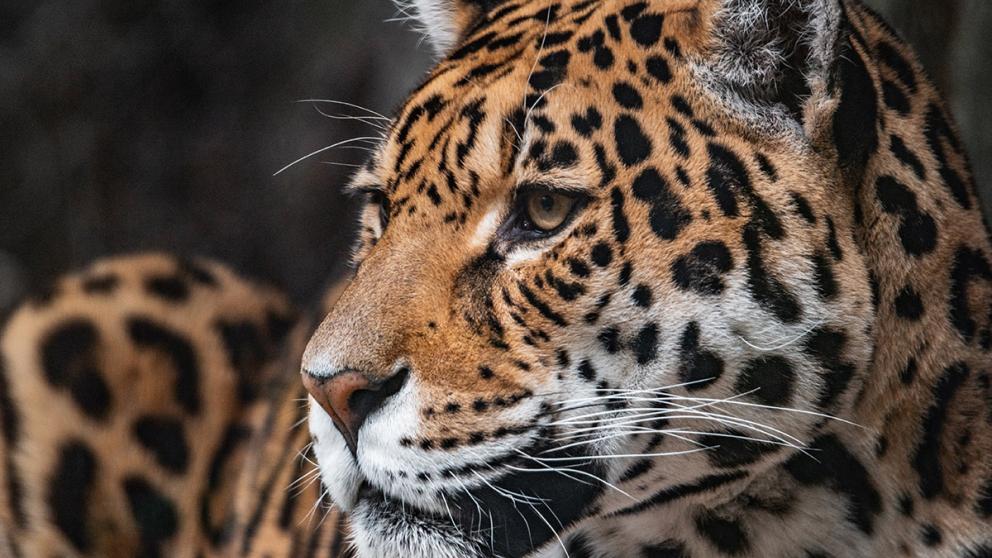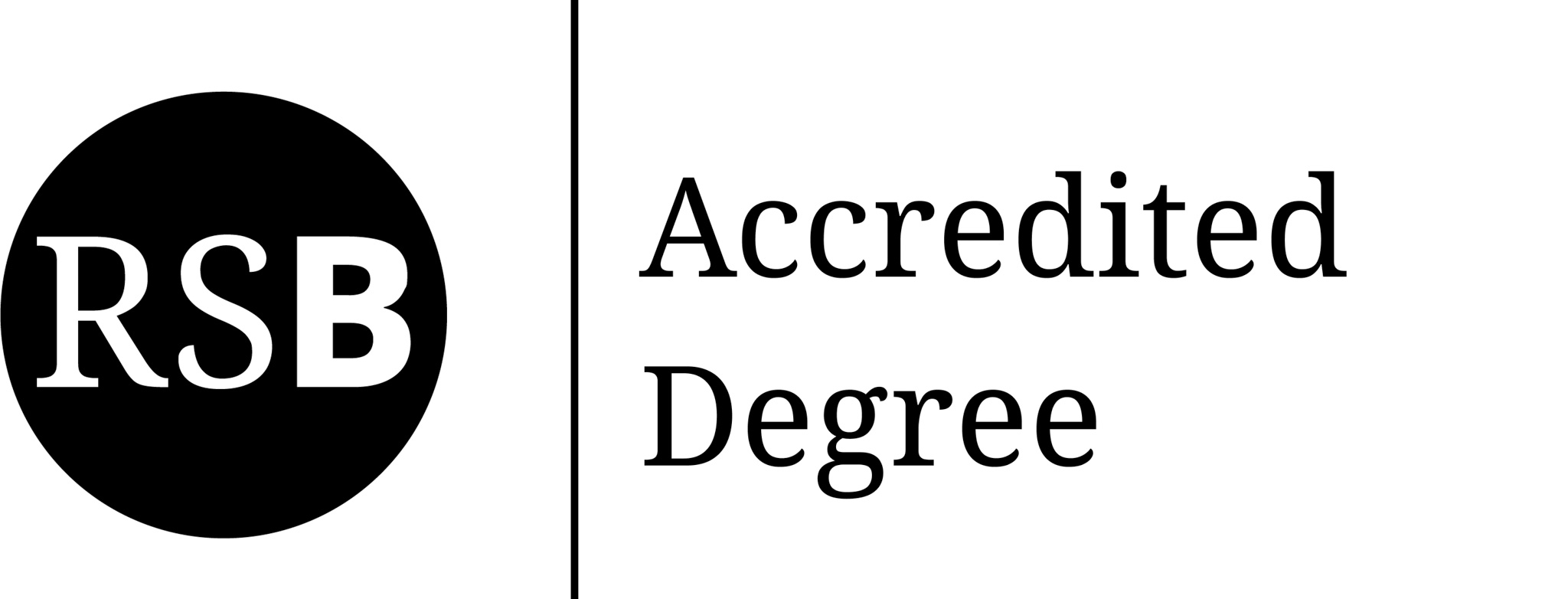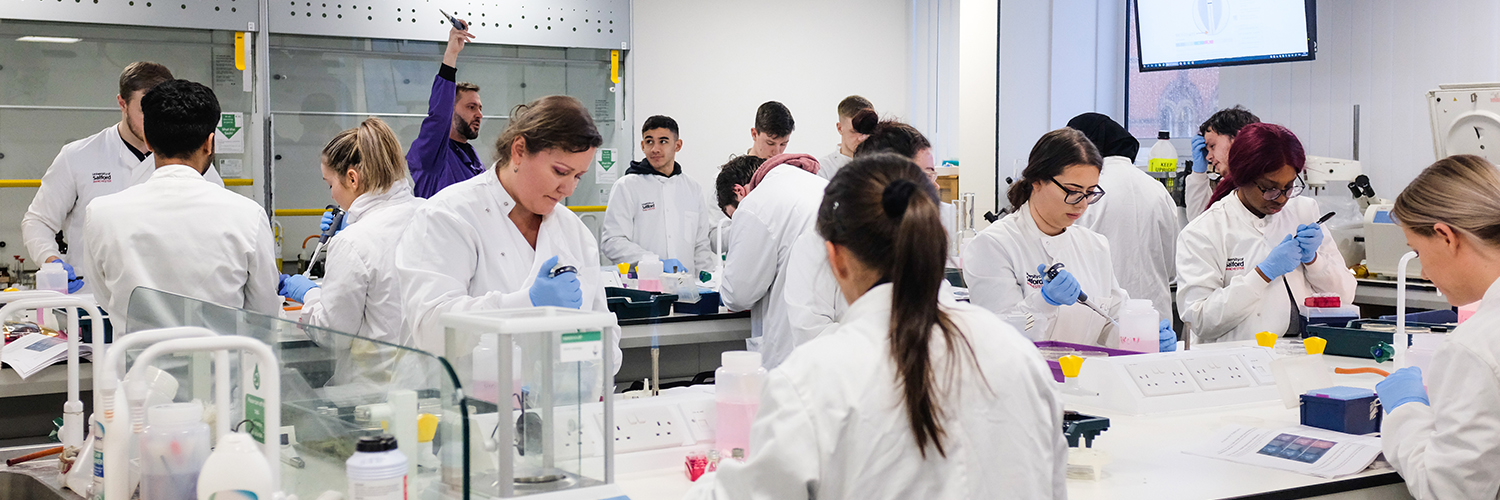
Zoology
Full-time
Part-time
With placement
Three year
Six year
Four year
September 2026
In a nutshell
Our BSc Zoology degree will develop your knowledge of concepts at the forefront of zoological science. You will learn about biological processes, their behaviour and how they react with their environment.
The Zoology programme, accredited by the Royal Society of Biology, will provide you with a comprehensive understanding of the biology of animals. You will learn about animals, the links between them and their environment, and key aspects of zoological phenomena from molecular to ecological levels.
Practical training will equip you with many of the subject specific, personal and practical skills that you will need for your future career. You will have the opportunity to go on several field trips over the duration of this programme, which will provide real world experiences and examples to learn from. You will only pay a modest, non-refundable administration fee for the residential field courses, which are otherwise 100% subsidised by the university.
Salford ranks 8th on People & Planet's University League
People & Planet is the largest student network in the UK campaigning for social and environmental justice. They envision a future in which spiralling inequality, instability, climate crisis and resource depletion are reversed, and a world in which the balance of power in society has fundamentally shifted to an equal world that benefits all of us. University of Salford scored 71.0% and ranked 8th in the University League, with our highest scores in Managing Carbon, Staff and Student Engagement and Education for Sustainable Development.
Want to hear more about what the course is really like? Hear it straight from the source. Read our student stories about their time here studying Wildlife Conservation with Zoo Biology, student support, placement years and Student of the Year awards:
- Read Victoria's story - studying Zoology and Marine Biology.
- Read Domna's story - studying Zoology with Professional Studies
This programme includes an optional placement year approved by an academic placement coordinator, which offers you the chance to put your studies to use in a real working environment.
Start your study journey
Register for our next Open Day to learn more about studying zoology, explore our facilities and meet the course team
You will:
- Learn about animals, the links between them and their environment
- Develop a comprehensive understanding of the biology of animals
- Gain real-world experience through field trips and placements (including international)
options available
students accepted
Course accreditations

This is for you if...
You are interested in the study of animal life and their biological processes
You want to know more about the interactions of animals with one another and their environment
You want the opportunity to gain work experience
All about the course
Course delivery
Pursue for passion for the animal kingdom with our BSc Zoology degree. Taking you from the laboratory to the field, we have shaped a curriculum that will develop your knowledge of concepts at the forefront of zoological science, and provide you with practical and transferable skills to be a success in your future career.
Delivered over three years of study - or four, if you choose an industry placement, you will develop and advance your zoology knowledge and field work skills. You will learn about biological processes, animal behaviour and ecosystem interaction.
Learning experience
Fieldwork at the heart of our Zoology course. You'll have plenty of opportunities to get involved in UK-based residential courses going to places such as Blencathra in Cumbria and the Isle of Cumbrae in Scotland, which includes studies of the zonation and ecology of animals and plants on various rocky sea shores.
You will also have the option to take specialist modules, where you will travel to tropical locations for fieldwork. In recent years students have been to locations such as Gambia and Brazil.
Industry placement
On this course, you will have the option to take an industry placement year between years two and three. Although you will be responsible for securing your placement, our tutors will support you in finding a role, and monitor your progress throughout.
Industry placements are an excellent way to enhance your CV, gain hands-on work experience and build industry connections. We often find that placement students achieve higher final year grades.
Previous zoology students have completed placements with public health laboratories, wildlife trust, or research organisations such as the Centre for Ecology and Hydrology, MAFF or Central Veterinary Laboratory.
Biodiversity
Life arose on Earth at least 3.5 billion years ago. Today, Earth hosts an extraordinary diversity of organisms, with recent study estimating that there are between 2 and 20 million eukaryote species alive today (the vast majority of which have still not been identified and described by scientists). However, this is a small fraction of all the species that have ever lived, >99.9% of which are extinct. This module will give you an overview of this remarkable biodiversity, focusing on the major groups, their characteristics, their diversity, and their evolutionary relationships.
Global Distribution of Wildlife
This module will give an overview of the world’s major biomes and, using case studies from around the globe, will explore the principal factors that drive the distribution of species and communities and the way wildlife adapts to these factors. Moreover, the module will provide you with a sound understanding of how the application of biogeographic principles can aid conservation planning.
Study Skills
In this module you will learn by observation, investigation, comparison and engagement and will develop practical learning and presentation methods which can be applied generically during year one and beyond. You will also gain an appreciation of Personal Development Planning and effective data handling, calculation and numerical skills.
Molecules to Microbes
This module focuses on the basic principles involved in the build-up of molecules from atoms: the formation, properties and importance of bio-organic molecules, the diverse nature of micro-organisms and their structure, function and importance.
Biological Skills
This module will help you develop practical laboratory skills employed in biological laboratory practice and relevant to cell, organismal, micro and molecular biology, which will form a basis for competence in biological and biochemical experimental work.
Genes to Ecosystems
In the first trimester, this module provides a systems-led approach to understand basic concepts of genetics. In the second trimester, this approach is extended to understand basic concepts of ecosystems.
Introduction to Parasitology and Infectious Diseases
This module aims to provide you with a comprehensive lecture programme and directed reading, enabling you to gain knowledge and understanding of: the range of infectious diseases that impact on humans; the basic biology and life cycles of protozoa and helminths of medical importance; vectors that transmit infectious agents and the internal and external factors that affect transmission of infectious diseases.
Research Skills
The aim of this module is to show you how to learn by observation, investigation, comparison and engagement and to develop your practical learning and presentation methods which can be applied generically during the rest of the course and beyond.
Data Science
The aim of this module is to develop the skills of students in data handling, data analysis and quantitative methods across a broad area within the Biological Sciences, with relevance for transferrable workplace skills and future employability. There will be a focus on developing skills with the statistical programming language R, which is becoming an industry standard and skill often sought by employers.
Animal Physiology
The Animal Physiology module considers the comparative physiological adaptations of different organismal groups to their environments. Furthermore, it develops an understanding of form, function and adaptation in organ systems central to the maintenance of life and interaction with the environment.
Choose one option from the following:
Ecology in Action
You will study the fundamental principles of population and community ecology, including the impact that factors such as competition, predation and parasitism may have on population size and community structure. This module also has a residential field course where students put theory into practice and conduct their own ecological studies.
Animal Evolution
This module provides a structured approach to evolution and covers the evolution of animal body plans with a focus on vertebrates as well as covering the mechanisms that drive evolution.
University Wide Language Programme
This module provides the opportunity to learn or develop a language with the University-wide language programme.
And one option from
Wildlife Behavioural Ecology
This module focuses on the principles of wildlife ecology and animal behaviour with particular reference to mammal and bird species. It also introduces scientific methods in the study of ecology and behaviour.
Ocean Challenges
In this module you will learn about the challenges faced by the marine ecosystems and marine organisms. The module provides you with the opportunity to engage in actual data collection and data analysis during a residential course (compulsory to the module). You will also look at contemporary environmental issues in marine biology. The module encourages you to adopt an investigative approach to ecological studies.
Biology of Parasites
This module looks at the importance of human and animal parasites, in relation to medical, veterinary or wildlife aspects, life-cycle biology, host response and the principles of parasite epidemiology and transmission. You will also study strategies for parasite detection, diagnosis and control. The module includes extended practical classes based on material collected in the field.
Veterinary and Zoonotic Infectious Diseases
This module looks at the maintenance and transmission of infectious diseases of veterinary or zoonotic interest. Particular interest is focused on the role of wildlife species in the ecology and epidemiology of infectious diseases. The role of arthropod-vectors in transmitting infections, and how this influences the ecology of such infections, is also studied.
Choose one option from the following:
Final Year Project and Professional Skills
This dissertation module allows you to develop independent research skills, including both data collection/generation (for example, via lab-based research or fieldwork) and analysis, while conducting research on a topic in an area relevant to your programme of study. You will also develop your professional skills, with a focus on employability.
Final Year Project with Science Communication and Professional Skills (HANS)
This dissertation module allows you to develop independent research skills, including data analysis, while conducting research on a topic in an area relevant to your programme of study. You will learn about science communication and the variety of methods in which science can be disseminated and communicated, and then put these methods into practice. You will also develop your professional skills, with a focus on employability.
Plus one option from
Fisheries Science
This module will give you a broad understanding of the world’s fisheries, their usefulness, their drivers, their controversies; and the ability to assess the conflicts of interests among stakeholders.
Animal Cognition and Social Complexity (Wildlife)
The aim of this module is to develop an understanding of the cognitive abilities and limitations of nonhuman animals, with a particular focus on nonhuman primates. The course also develops your understanding of the cognitive challenges associated with living in complex social groups.
Tropical Ecology and Conservation
This module is based round a 2-week field trip to a tropical biology field station. Students will learn concepts in, and approaches to, tropical ecology and conservation and biodiversity in tropical ecosystems. The module involves an independent research project in the field that will be written up as a scientific report.
University Wide Language Programme
This module provides the opportunity to learn or develop a language with the University-wide language programme.
And one option from
Tropical Ecology and Conservation
This module is based round a 2-week field trip to a tropical biology field station. Students will learn concepts in, and approaches to, tropical ecology and conservation and biodiversity in tropical ecosystems. The module involves an independent research project in the field that will be written up as a scientific report.
Applied Freshwater Biology
This module aims to enable you to gain a knowledge and critical understanding of the biology and ecology of freshwater systems relevant to the water industry and related organisations which regulate and control pollution of the aquatic environment.
It also provides you with the necessary skills and techniques to undertake biological and chemical evaluation of water quality ecology, fish population and condition to apply these in novel situations to generate data for interpretation. In particular, you will be provided with the necessary laboratory skills to test water quality to the standards of the Water Framework Directive UK.
Practical Ecology and Conservation
This module aims to equip you with the basic knowledge and skills needed for ecological consultancy. It is designed to promote employability and apply academic qualifications to a growing sector that seeks to provide expertise on ecological and environmental issues to industry, governmental agencies and other organisations. You will be given an overview of consultancy and the ecology of survey methods used for protected species and habitats. The main assessment will involve you proposing surveys for a client wanting to build on a specified site, in addition to carrying out surveys in practical sessions.
Bird Biology and Conservation
In this module, you will gain a critical understanding of avian diversity, form, function and behaviour. You will carry out an investigation into avian ecology and adaptation, collect behavioural data from wild birds and analyse acoustic data using specialist software. You will also learn about the ecological importance of birds and develop an awareness of bird conservation.
University Wide Language Programme
This module provides the opportunity to learn or develop a language with the University-wide language programme.
We take a flexible approach to our course delivery that promotes diversity and inclusivity and provides a blended learning experience, which will vary to meet specific programme requirements. This learning time includes formal lectures and interactive activities such as seminars, tutorials, practical sessions, laboratory and studio learning. Smaller classes may be used to support collaborative activities such as project and group work and presentations. A range of different assessments and feedback is offered to meet the needs of both our diverse student body and specific subject needs.
Our undergraduate courses are normally made up of 20 credit modules which are equal to 200 hours of learning time. A three-year degree qualification typically comprises a total of 360 credits (120 credits per year).
Please note that exact modules and content offered may vary in order to keep content current and, for courses that offer optional modules, may depend on the number of students selecting particular options. When accepting your offer of a place to study on a programme with optional modules, you should be aware that optional modules may not all run each year. Your tutor will be able to advise you as to the available options on or before the start of the programme. Whilst the University tries to ensure that you can undertake your preferred options, it cannot guarantee this.
Frequently asked questions
What is Zoology?
Zoology the scientific study of animals. On a zoology degree you can expect to study the structure, embryology, classification, habits, and distribution of all animals, both living and extinct, and how they interact with their ecosystems.
What is a zoologist likely to do?
Zoologists work in laboratories, zoos, museums, and universities, where they conduct research, observe animal behaviour, and analyse data to understand animal life better. They might also work in the field, studying animals in their natural habitats and developing conservation strategies to protect endangered species
What's the difference between a zoologist and a zookeeper?
Zoologists are more concerned with the research and observation of the animals whereas Zookeepers work with the animals that live in zoos.
Is Zoology hard?
At the University of Salford, you will be at the cutting-edge of research and the projects you will undertake will be exciting and inspiring. Despite the challenging and busy nature of the programme, it can also be very rewarding as you’ll be building your knowledge and making an impact in such an important field. By the end of your degree, you will have developed many key skills including teamwork, communication, numerical and data analysis and independent thinking.
There are methods to ensure you’re getting the best of your degree, including practicing good time management and making time for yourself to recharge. If you find your studies overwhelming, there will be support available from your lecturers and university support staff.
What job can you get with a zoology degree?
Upon graduating from the programme, you will be well-equipped with the skills and knowledge needed to build a career. Many Zoology graduates go on to become:
- Zoologists
- Environmental Consultants
- Ecologists
- Zookeepers
- Conservation Officers
School of Science, Engineering and Environment
Rising to the challenge of a changing world, our degree courses are designed to shape the next generation of urbanists, scientists, engineers, consultants and leaders.
Driven by industry, and delivered by supportive programme teams, you can develop the knowledge and skills to become unstoppable in your career.
Facilities
As a zoology student, you will be based in our advanced, integrated teaching laboratory known as the Bodmer Lab. This specialist, purpose built facility ensures that you benefit from the latest technologies to keep teaching and learning apace with cutting-edge innovation and discovery.
Industry collaboration and research
When you start this degree with Salford, you are also joining a community making a difference in industry, our local region and in our wider society.
Many of our academics and technicians who support your course also deliver collaborative, interdisciplinary, high-impact work in a range of bioscience issues and challenges.
Discover how you are part of something bigger.
What about after uni?
Employment
The course is designed to help you to develop a range of personal and professional skills which will make you highly-employable. These include specialised knowledge of zoology as well as field work, data interpretation, report writing and team work skills among others.
The animal kingdom and our precarious ecosystems are threatened - both by mankind and nature itself. Studying zoology and building an understanding of animal physiology, evolution, behaviour and ecosystems is the first essential step to finding solutions to these global issues.
Zoology graduates can enter a wide range of vocations in biological or life sciences. These include careers related to zoological sciences training such as science communication and publishing, science administration, zoo work, wildlife conservation and management. Other graduates may go on to work in the pharmaceutical industries, agrochemicals or medical technology as well as research institutes, government agencies and as animal physiologists.
Further Study
You might find you want to learn more about biosciences. Building on our scientific expertise, we offer a range of postgraduate courses that can take your interests and career opportunities further. Salford graduates and alumni also receive a generous fees discount.
- Biomedical Science (MSc)
- Biotechnology (MSc)
- Drug Design and Discovery (MSc)
- Wildlife Conservation (MSc)
Zoology graduates can also choose to follow a research programme with our Biomedical Research Centre or our Ecosystems and Environment Research Centre to further their knowledge in topics such as microbiology, parasitology and conservation. Learn more about postgraduate research opportunities available through our Doctoral School.
What you need to know
Applicant profile
We are looking for applicants who are fascinated about learning more about animal life and biological processes, how species interact with one another and they engage with ecosystems and the environment.
English language requirements
If you are an international student and not from a majority English speaking country, you will need an IELTS score of 6.0 with no element below 5.5. We also accept a range of other English language qualifications.
If you do not have the English language requirements, you could take the Pre-Sessional English course, or the International Foundation Year to gain entry onto this degree.
Accreditation
This course is accredited by the Royal Society of Biology, which means that it meets their requirements for receiving up-to-date knowledge in the right learning, support and teaching environment. Studying an accredited course is one way of showing employers you have the knowledge and skills that they are looking for in graduates and has the potential benefits of greater employability prospects and enhanced competitiveness in a crowded global jobs market.
UCAS tariff points
104 - 112 UCAS points.
A level
104 - 112 UCAS points. Two full A-levels required as a minimum, including Grade C in Biology.
BTEC Level 3 National Extended Diploma
Grade DMM required from Applied Science, or other Science-based BTEC including Biology units. We can accept BTEC Subsidiary Diplomas in combination, where we would ask for a Merit grade in Applied Science.
T Level
Overall Grade M required in a Science subject. Must have passed all components.
Scottish Highers
104-112 UCAS points from at least two Higher Levels, including Higher Level Biology.
Irish Leaving Certificate
104-112 UCAS points from at least two Higher Levels, including Higher Level Biology.
International Baccalaureate
30 points overall, including Grade 4 in Higher Level Biology. Must have passed the full International Baccalaureate to be considered.
Access to HE
104-112 UCAS points from a QAA Approved Level 3 Access to HE Diploma in a suitable Science subject (i.e. Biology, Chemistry, Anatomy, Physiology).
GCSE
In addition to Level 3 requirements, you must have evidence of Level 2 GCSE English and Maths at Grade C/4 or above.
International Students
We accept qualifications from all around the world. Find your country to see a full list of entry requirements. If you do not meet the entry requirements, you could take the International Foundation Year to gain entry onto this degree.
Salford Alternative Entry Scheme (SAES)
We welcome applications from students who may not meet the stated entry criteria but who can demonstrate their ability to pursue the course successfully. Once we have received your application we will assess it and recommend it for SAES if you are an eligible candidate.
There are two different routes through the Salford Alternative Entry Scheme and applicants will be directed to the one appropriate for their course. Assessment will either be through a review of prior learning or through a formal test.
How much?
| Type of study | Year | Fees |
|---|---|---|
| Full-time home | 2026/27 | £9,790 per year |
| Full-time international | 2026/27 | £18,120 per year |
Tuition fees will increase in the second and each subsequent year of your course by the rate of inflation, subject to the maximum fee limits set out by the UK Government.
Additional costs
Field trips
All national field trips are funded by the University, but you may need to consider additional costs such as food during day trips and spending money.
For the international field trip to the tropics (as part of the optional module Tropical Ecology and Conservation) you will also be subsidised by the University, but a major contribution to flights and in-country costs will apply. You will be made aware of these costs before selecting the module.
You should also consider further costs which may include books, stationery, printing, binding and general subsistence on trips and visits.
Scholarships for international students
If you are a high-achieving international student, you may be eligible for one of our scholarships. Explore our international scholarships.
ALL SET? LET'S APPLY!
Enrolment dates
Student information
Terms and conditionsUCAS information
Course ID C300
Institution S03



